Executive Council
Please click a person below to expand:
President -
Professor Peter Watson
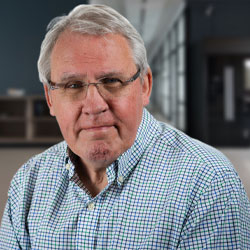
Professor Watson was one of the first lawyers to qualify as a Solicitor Advocate in Scotland. Born in Greenock, he is the son of a former senior police officer. His university education began at Strathclyde where he studied Economics and Psychology.
He later studied law at Edinburgh University, research at the Scandinavian Maritime Law Institute at Oslo University and studied Petroleum Law at Dundee. Professor Watson has many outside interests including the Chairmanship of Glasgow Children’s Hospital Charity. He has also completed a very successful three-year stint as President of Legal Netlink Alliance Europe.
One of Professor Watson’s niche areas is in the media and he has advised ITN, Mirror Group Newspapers (Daily Record and Sunday Mail), SMG, Newsquest (The Herald, Sunday Herald and Evening Times) Border television, Channel Four, Reuters, GMTV and Sky News.
Other prestigious clients included the Scottish Police Federation, The Association of Scottish Police Superintendents and many other public bodies and private individuals.
He has also worked with the United Nations Economic Commission for Europe. His focus has been on access to justice and integrity of legal systems in former Soviet Union countries.
Professor Watson was Solicitor of the Year 2008 and has been involved in litigation in 12 countries other than the UK.
Past President -
Tracy Alexander FKC
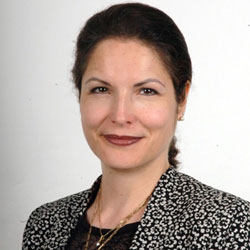
Tracy Alexander is the Director of Forensic Services at the City of London Police, a Fellow of King’s College London, a PhD supervisor for the King’s Forensics International Forensics, Wildlife Trafficking research theme.
Tracy began her career in forensic investigation in 1992 at New Scotland Yard. She is an advisory panel member and Trustee of Inside Justice and the current President of the British Academy of Forensic Sciences. She has worked in forensic science for 30 years, spending 17 years within the Directorate of Forensic Services at New Scotland Yard as Crime Scene Manager for the Homicide Command and latterly as Head of Forensic Intelligence. As case review specialist at LGC Forensics she headed the cold case investigation unit working on many high profile cases.
She has appeared in several documentary programmes on forensic investigation and is currently contributing to the podcast "Smoking Gun".
Secretary-General -
Prof. Denise Syndercombe Court
PhD, FIBMS, SSci, DMedT, MSB, CBiol, MFSSoc
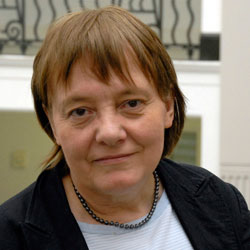
Professor Syndercombe Court is a highly respected scientist, academic, statistician and published author with over twenty years’ experience in laboratory research, evidential examination and is a court-going accredited expert witness, giving evidence in court on many occasions over the last fifteen years. Her appointment as a Professor in Forensic Genetics at King’s College London has allowed her to teach forensic genetics to undergraduate and post-graduate students and supervise those undertaking research for their doctorates. Her expertise relates to human DNA analysis for identification, both analysis and interpretation and she is familiar with molecular biology techniques involving sequencing and fragment analysis in the analysis of nuclear and mitochondrial DNA, methylated DNA and RNA in all body fluids.
She leads an ISO17025 Ministry of Justice accredited laboratory as part of King’s Forensics that specialises in human relationships. She is a blood pattern expert and statistician and has held consultant positions in medical and forensic science and medical statistics with various organisations. She is a member of several professional associations (Academy of Forensic Medical Sciences, Biochemical Society, British Academy of Forensic Sciences, Chartered Society of Forensic Sciences, Faculty of Forensic and Legal Medicine, Institute of Biological and Medical Sciences, International Society of Forensic Genetics, Royal Society of Biology and the Royal Statistical Society), represents the UK on the European DNA profiling group, is the International Society of Forensic Genetics representative to the Forensic Regulator’s DNA Working Group and is a member of the Home Office Biometric and Forensic Ethics Group (BFEG) and their Age Estimation Science Advisory Committee (AESAC). Her research group has been the UK partner, with other European Forensic Institutes, undertaking research in the forensic arena: STADNAP, SNPforID and EuroforGen, presenting her research and attending relevant International meetings.
Treasurer -
Abigail Bright
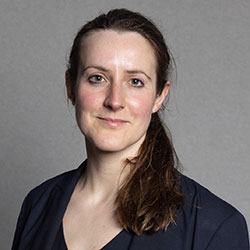
“A leading individual” – Legal 500 directory individual entry 2023
Abigail (Dip.FMS, Worshipful Society of Apothecaries, 2010) has worked with several current and former Executive Council members of BAFS. Abigail was called to the Bar in 2010 (Middle Temple Queen Mother Scholar). She has a common law practice, concentrating on special jurisdiction work, at Doughty Street Chambers. Abigail routinely appears as sole counsel against Silks in trials of real and unusual complexity. She has defended and led in terrorism trials. In 2023, Abigail taught law and ethics at the LSE’s School Law whilst practising. For pro bono inquest work for bereaved families, Abigail was short-listed for Junior Pro Bono Barrister 2022. Abigail regularly conducts filmed and timed cross-examinations of expert witnesses for the Institute of Expert Witnesses as part of its accreditation and enrolment of expert witnesses on its register of accredited experts. Abigail is passionate about contributing to quality law reporting. Having been a case digester for the Administrative Court Digest (2006 – 2008), the Incorporated Council of Law Reporting for England & Wales (‘ICLR’) appointed Abigail a trustee and director. As an elected representative (2021 to 2024) of the Bar Council, Abigail serves on its Bar ethics committee and IT panel.
Since June 2017, Abigail has served as the Bar representative on two Home Office forensic scientific committees: the Forensic Science Advisory Council to the Forensic Science Regulator, and the Biometrics and Forensics Ethics Group. In August 2023, Abigail was appointed to the Forensic Science Regulator’s specialist group to assist and advise the Forensic Science Regulator, Gary Pugh, OBE, on issues of interpretation of forensic scientific evidence in criminal cases. Since April 2023, Abigail has been the secretary of the Working Group on Advocacy training for a Ukraine Tribunal, Inns of Court College of Advocacy. Abigail is the treasurer of the London Sailing Club.
Abigail was counsel in several trials at the Central Criminal Court in which Professor Nigel Eastman was examined as an expert witness to state his opinion on disputed psychiatric issues. In one such case in which Abigail defended, the Court preferred Professor Eastman’s evidence that the defendant had been in the grip of a peculiarly rare psychiatric disorder, paranoid morbid delusional jealousy (‘Othello syndrome), at the time that he killed his wife. Another eminent consultant forensic psychiatrist had disagreed in oral evidence with Professor Eastman’s opinion. The outcome for the defendant was that a murder count was resolved when the defendant pleaded guilty to manslaughter, resulting in a hospital order.
Editor of Medicine, Science and the Law -
Prof. Andrew Forrester
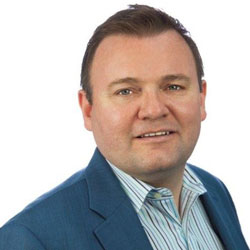
Andrew Forrester is Professor of Forensic Psychiatry at Cardiff University, and a Consultant Forensic Psychiatrist with Swansea Bay University Health Board and Oxleas NHS Foundation Trust.
He has worked as a psychiatrist in prisons and other criminal justice settings for over 20 years, and written over 800 reports to the Courts, mainly in criminal proceedings.
His clinical and research interests relate to mental health conditions as they present in the criminal justice system, including prisons, courts, police custody, probation, and other places of detention, with a focus on vulnerability and marginalisation.
He is forensic lead at the National Centre for Mental Health, Director of the Offender Health Research Network Cymru, and chair of the Criminal Justice Steering Group Traumatic Stress Wales.
He is Academic Secretary to the Faculty of Forensic Psychiatry, Royal College of Psychiatrists, and Editor in Chief of the SAGE journal Medicine, Science and the Law.
He sits on the executive committees of the Forensic Faculty of the Royal College of Psychiatrists, the British Academy of Forensic Sciences, the charity Crime in Mind, and the Quality Network for Prison Mental Health Service (QNPMHS).
He chairs the World Psychiatric Association’s prison mental health task-force, and is a member of the Howard League’s advisory board for sentencing principles for young adults. He is a member of the Society of Expert Witnesses, the Medical and Dental Defence Union of Scotland, and the Royal Society of Medicine.
He is a Fellow of the Royal Society of Arts, an honorary member of the World Psychiatric Association, and a former member of the Royal College of Psychiatrists’ Working Group on the Mental Health of Refugees and Asylum Seekers.
Lesley Nott ACMI

Lesley is a Forensic Business & Communications Manager working in research, service provision and online education in King's Forensics, King's College London. A Specialist Case Manager for DNA @ King's ISO 17025 UKAS Ministry of Justice accredited laboratory. Managing contracts and international business, stakeholder and client relationships. An expert in forensic, post mortem and human identification, immigration, surrogacy, donor conceived, ancestry and complex relationship casework. As part of the Forensic Genetics group, Lesley is a key contributor to maintaining quality and standards for accreditations. She is an advocate for looked after children and unaccompanied young migrants, collaborating with United Nations and international organisations in the field to support legal processes and uphold human rights.
Lesley leads on PR, media and communications projects and events to showcase excellence, impact and innovation in forensic science, medicine and law, and manages a suite of associated social media accounts to promote strategic activities in key forensic networks.
As BAFS Charity Administrator, Lesley supports the Executive Council Officers and their objectives, promotes the aims of the Constitution and Medicine, Science and Law journal, and maintains professional administration of the organisation for members. She is responsible for managing special events and lectures to provide education and training, website management and social media communications.
Lesley co-leads the Family and Carers Training and Support programme, developed with the support of the Anna Freud Centre, for the friends and families of people with BPD/EUPD. She also leads the Rethink BPD Carers support group.
Associate member of Chartered Management Institute.
Jill Battley MBA, CFE, CIRM
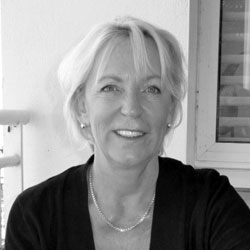
Jill is the former Head of Intelligence at New Scotland Yard for the Organised Crime Directorate. She has extensive UK and international investigative expertise working in Europe and overseas in a high-risk environment.
Jill is on the United Nations list of International Experts and also works for private and public sector clients to implement security reforms using a broad range of innovative technology systems.
Paul Dainty Forensic Manager - Forensic Services | City of London Police
Coming soon
Lorna Hackett
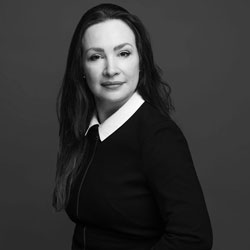
Lorna Hackett is a high profile civil rights lawyer, and co-founder of Hackett & Dabbs LLP. She is a highly accomplished public lawyer, who is dedicated to equality, fairness and justice and representing the most vulnerable in society. She is a renowned public speaker in social justice and criminal justice reform.
She has campaigned for prisoners serving imprisonment for public protection since 2010. Alongside Michael Mansfield QC she co-hosts The Two Heads podcast www.thetwoheads.com
Leslie Millin Barrister
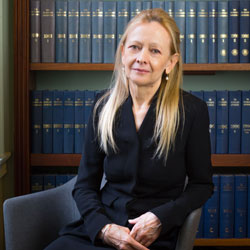
Leslie Millin was called to the Bar in 1988 after attending the Inns of Court School of Law and specialises in Inquests, Employment, and Personal Injuries. She completed pupillage at 3 Gray’s Inn Place (now 2 Verulam Buildings) and 1 Crown Office Row. She has appeared in the Employment Tribunal, the Employment Appeal Tribunal and the Court of Appeal. She has also appeared at the County Court, the High Court and the Administrative Court.
She was a junior counsel in the first inquest regarding Article 2 of the Human Rights Act led by Philip Havers QC. R (on application of Goodson) v Bedfordshire and Luton Coroner (Luton and Dunstable Hospital NHS Trust, interested party).
Leslie Millin has attended numerous inquests on behalf of NHS Trusts and other organisations but also acts for families of deceased. She also lectures extensively to various firms of instructing solicitors and recently has been providing webinars.
Leisa Nichols-Drew
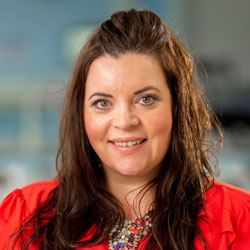
Leisa Nichols-Drew is a Chartered Forensic Practitioner (Forensic Biology), National Teacher Fellow, Churchill Fellow, and Associate Professor at De Montfort University.
Leisa’s career in forensic science casework commenced in 2000, at the former Forensic Science Service, and more recently Cellmark Forensic Services.
Leisa’s expertise is in the forensic science laboratory evidential examination, recovery, and documentation of crime scene exhibits, from a range of offences, within the disciplines of Forensic Biology (blood pattern analysis, bodyfluids examinations, DNA processing and submissions) and Evidence Recovery (including hairs, fibres and trace particulate debris, also shoe/tool/tyre mark analysis, microscopy and UV/IR imaging techniques). Additionally, as a Quality Advisor, Laboratory Auditor (ISO 17025), Technical Trainer, Subject Specialist, and Researcher.
With extensive attendance experience at crime scenes and vehicle examinations, post-mortem examinations, courts, cold-case reviews and case conferences, Leisa has coordinated complex forensic laboratory examination strategies contributing to high profile investigations through the FSS Major Crime Service within the UK Criminal Justice System and international agencies.
Leisa has disseminated her research (novel fingermark development methods and also, proactive and reactive approaches for knife crime offences) around the world.
In 2020, Leisa co-founded an international community and network to support academics and practitioners in forensic science training and education, with the transition to online learning, during the Covid-19 pandemic.
Leisa is honoured to be elected as a member of the Executive Council of the British Academy of Forensic Sciences.
Professor (Dr) Piyal Sen

Prof (Dr) Piyal Sen is a Consultant Forensic Psychiatrist, working as Medical Director at Chadwick Lodge and Eaglestone View in Milton Keynes, a 116-bedded hospital for men and women with a mixture of secure and open beds under Elysium Healthcare. He has been a consultant forensic psychiatrist for more than 2 decades now, and while training, was a Lecturer in Forensic Psychiatry at the Institute of Psychiatry, Psychology and Neuroscience, King’s College, London and Queen Mary and Westfield College.
He is also currently Visiting Professor and Clinical Educator at Brunel University and has research links to the Institute of Psychiatry, Psychology and Neurosciences (IOPPN), King’s College, London. His research and teaching interests are in personality disorder, cultural psychiatry, ethics, and human rights.
He is the current Chair of the Special Committee of Human Rights, The Royal College of Psychiatrists, London. He is also Senior Member of the British and Irish Group for Studies in Personality Disorder, the largest group of professionals and service users in the field of personality disorder in the UK. He is also a member of the Royal College of Psychiatrist’s Asylum seeker and Refugee Working Group. He has given evidence to All-Party Parliamentary Groups representing the College and speaks on behalf of the College on this issue. He has been involved in the drafting of Position Statements on behalf of the College on asylum seekers and refugees.
He was one of the Principal Investigators in the first ever randomised controlled trial of clozapine in borderline personality disorder. He is an examiner for the MRCPsych finals and also sits on various appointment committees at Brunel Medical School. He has received various awards from the Forensic Faculty of The Royal College of Psychiatrists like Peter Scott and John Hamilton Fellowships.
Andy Stevenson
Andy Stevenson has been working in law enforcement since 1986. Between 1990 and 2016 he worked within the traffic department of Essex Police taking the lead in numerous multi vehicle fatal collisions. After qualifying as a forensic vehicle examiner he gave expert evidence at court on many major investigations. He also qualified as a detective, working on numerous homicides as part of the Major Investigation Team from 2007 to 2016.
In 2017 Andy joined the City of London Police as a CPIA disclosure officer at a time of many reviews and updated practices from the Attorney General. This has resulted in the review of numerous historical investigations and the introduction of many new policies and strategies at the City of London Police. Andy is now the lead disclosure officer in numerous high profile prosecutions and his work in this field has been recognised with numerous commendations from within the organisation and from trial judge HHJ Cahill (amongst others).
He is currently working with the cybercrime unit on another high profile case involving over 100 separate digital devices and has brought bespoke policies into place to manage this amount of data. He is key in implementing a change in procedures at the City of London Police in order that the review and presentation of fraud investigations can be shown to be fair to both the victims and the suspect.
Professor Peter Vanezis
MB, ChB, DMJ(Path), MD, PhD
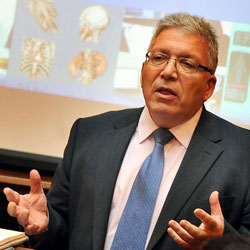
Professor Vanezis, member of the Royal College of Pathologists and a Fellow of the college (FRCPath); member of the Royal College of Physicians and Surgeons of Glasgow and fellow (FRCP(Glasg.) and a Founding Fellow of the Faculty of Forensic Medicine of the Royal College of Physicians in (FFFLM).
He has been a practicing forensic pathologist since 1974, having conducted in excess of 2,000 suspicious death autopsies, of which approximately 1,500 were homicides, and has held a number of academic and service appointments up to the current day. He has also carried out autopsies abroad, at the request of the Foreign and Commonwealth Office and in his capacity as Honorary Civilian Consultant to the Armed Forces, as well as on behalf of the United Nations International Criminal Tribunal. He has also been the supervising pathologist in a number of multiple death incidents including The Charing Cross Road Fire and The Kathmandu (Thai Airways) air crash.
He became an Officer of the Order of the British Empire awarded in the Queen’s Birthday Honours List June 2001, for Forensic Pathology Services in Kosovo.
He is also a member of a number of examining boards in forensic medicine and has served from time to time on college and medical school committees as well as carrying out academic research. This includes facial identification, forensic pathology, especially in relation timing of injuries and projects involving the next of kin of deceased persons reported to the coroner. He also teaches regularly to both undergraduates and postgraduate students and co-ordinates a number of postgraduate courses. He has also published widely in forensic medicine in peer reviewed journals has edited two books and contributed to a number of other textbooks. He also continues to have a professional interest as a forensic medical expert into the investigation of the death of Diana, Princess of Wales.
Professor Vanezis has appeared in a number of television programmes in relation to his work. He also gives interviews to radio programmes.
Professor Fiona Wilcox
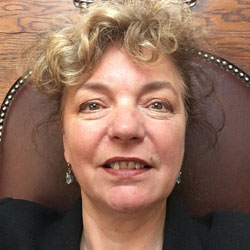
Professor Fiona Wilcox is HM Senior Coroner for Inner West London, in post since April 2011. She is dual qualified in law and medicine, a Master at Middle Temple, and a Fellow of FFLM. She is Chair of the Medico-legal committee of the Coroners’ Society of England and Wales, and the London Coronial lead on DVI and Excess Death Management, with special interest and training in the management of mass fatality incidents and disaster victim identification. She teaches widely, including on the Masters in Forensic Medicine at QMUL, where she is an Honorary Professor, Coroners’ Continuation Training, Middle Temple, Bart’s Anatomy Society, the police, and the Paediatric Law and Ethics course at Imperial etc. She sits on the Death Investigation Group, and the Pathology Delivery Board.
She trained as a doctor at the Medical College of St Bartholomew’s Hospital and was a GP in the East End of London before retaining as a barrister. She practiced in Criminal Law, and Professional Negligence based at Lamb Building and held Assistant Coroner positions in Inner South, East and North London and Kent.
She is an Apothecary and relaxes walking her giant dog.
Past Presidents
- 2023 Tracy Alexander FKC
- 2017 Dr Meng Aw-Yong
- 2015 Mr Robert Brown
- 2013 Professor Robert J. Flanagan
- 2011 Professor Michael Kopelman
- 2009 Dr Roy Palmer
- 2007 The Right Honourable Lord Justice Beatson
- 2005 Professor Sir Barry Jackson
- 2003 Professor Sir Colin Berry
- 2001 The Right Honourable Lord Justice Hooper
- 1999 Professor A. W. Goode
- 1997 Professor J. Stewart Orr
- 1996 Professor Peter Vanezis OBE
- 1995 Her Honour Judge Ann Goddard QC
- 1994 Bernard Grant Simms MBE
- 1993 Sir Montague Levine
- 1992 His Honour Judge Timothy Lawrence
- 1991 Dr Patrick J Lincoln
- 1990 Professor George C Jenkins
- 1989 G.J. Connor
- 1988 Dr P. Toseland
- 1987 Dr David M. Paul
- 1986 Roger Henderson QC
- 1985 Margaret Pereira CBE
- 1984 Dr J.D. Havard
- 1983 The Right Honourable Lord Justice Waller
- 1982 Dr Ronald Coleman
- 1981 Dr W.A.R Thompson
- 1980 H.D. Walton QPM
- 1979 Professor Barbara E. Dodd
- 1978 Professor J. Malcolm Cameron
- 1977 His Honour Judge Cox
- 1976 A Fraser McIntosh OBE
- 1975 Professor A. Keith Mant
- 1974 Professor Cyril J. Polson
- 1973 The Honourable Sir Gerald Thesiger
- 1972 Dr. Walter Somerville
- 1971 Dr. A John Howard
- 1970 Sir Roger Ormrod
- 1969 Dr. I.G.W. Pickering VRD
- 1968 Professor E.G.C. Clarke
- 1967 Sir David Napley
- 1966 Professor T.C.N. Gibbens CBE
- 1965 Dr. H.J. Walls
- 1964 The Right Honourable Lord Justice Lawton
- 1963 Professor Francis E. Camps
- 1962 Dr. L. Harrison Mathews FRS
- 1961 Sir Thomas George Lund
- 1960 Professor Sir Leon Radzinowicz
Join BAFS
BAFS welcomes applications for Membership from professionals with qualifications in medicine, science, or the law who have contributed, or are likely to contribute, to the application and practice of the Forensic Sciences. Applicants from within these disciplines who are interested, but lack experience, may be offered Associate Membership.







